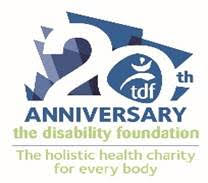 Hypnotherapy is a natural therapy, which uses hypnosis to work with a client’s individual belief systems. Under hypnosis, the conscious, rational part of the brain is temporarily less active, thus allowing the subconscious part of the brain to become more receptive to positive suggestion. Therapist and client can then work together to solve a problem by recognising and using an individual’s resources and capacities, strengths and experiences to accomplish a meaningful goal. No drugs or other additives are used during treatment.
Hypnotherapy is a natural therapy, which uses hypnosis to work with a client’s individual belief systems. Under hypnosis, the conscious, rational part of the brain is temporarily less active, thus allowing the subconscious part of the brain to become more receptive to positive suggestion. Therapist and client can then work together to solve a problem by recognising and using an individual’s resources and capacities, strengths and experiences to accomplish a meaningful goal. No drugs or other additives are used during treatment.
What happens during a treatment?
During your first Hypnotherapy session, the therapist will take a full medical history and ask about your current physical and mental health, the issue you wish to address and your motivation to resolve it. Thereafter, you will be invited to relax in an armchair or couch and will then be guided into a sate of deep physical and mental relaxation. A variety of methods for inducing a state of hypnosis may be used which may include counting techniques and creative visualisation. Once hypnotised, the therapist will work on changing your emotional responses by suggesting a series of positive rather than negative thoughts and images. The client is generally aware of his/her surroundings and can choose to come out of hypnosis at any time. Your hypnotherapist will never try to hypnotise you against your will. Hypnotherapy also never claims to cure a problem instead change a perspective to us, so instead of being “controlled” by your issue, you are in control of it.
Why choose hypnotherapy?
Hypnotherapy has been proven to be one of the most effective ways of treating phobias because it can assist in changing attitudes to fear and worry. It can also help with addictions as well as help clients deal with discomfort or pain without the need to take pain-killers – hypnosis was used before the invention of anaesthesia. Some women learn self-hypnosis to help them through childbirth and labour; others find hypnotherapy helps manage personal crises such as miscarriage, bereavement, redundancy or divorce. The following is a list of conditions, which may benefit from hypnotherapy:
- Weight control
- Pain control and/or alleviation
- Smoking
- Phobias and irrational fears
- Insomnia and sleep disorders
- Social difficulties (i.e. lack of confidence, self esteem)
- Migraine
- Irritable Bowel Syndrome
- Mood, thought and feeling disorders
- Panic attacks
- Depression
When is it not safe to have hypnotherapy – contra-indications and precautions?
People with certain psychiatric disorders such as schizophrenia or serious psychological disorders should never undergo hypnosis. In such cases, a competent therapist may recommend an alternative form of psychotherapy or modify their technique. If you suffer from a chronic disorder, either physical or mental, a consent may be required as hypnosis may sometimes cause an “abreaction” – bringing back echoes of someone’s past which may be deeply disturbing.
Session Information
Sessions last approximately 60 minutes. No need to undress. Suitable for adults only.


